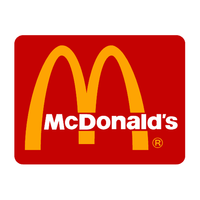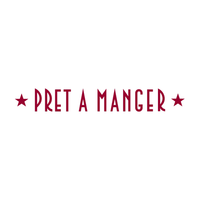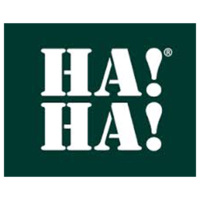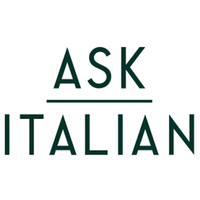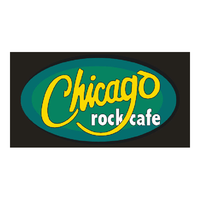Takeaways
Had a bad experience with a takeaway and need to look up your rights? We've put together this handy guide on takeaways for you!
Advertisement
There’s no better way to relax after work than to order a takeaway – but what happens when there’s a problem? We’ll run you through your rights and a few common problems – if there’s one thing you should take away from this guide, it’s that you should never be afraid to complain!
Quality of food and service
Food gave me food poisoning
When you eat out you have a right to food that is safe, matches its description and is of a satisfactory quality. Getting food poisoning from a takeaway meal is a breach of your rights. If you suffer food poisoning after eating at a restaurant, you could claim that the restaurant has breached its contract to provide food prepared with reasonable care and skill, under the Supply of Goods and Services Act. You should consider reporting the restaurant to the Food Standards Agency (FSA) – they may wish to undertake an investigation to prevent further harm to customers.
We recommend that you get a doctor’s note regarding your case of food poisoning. We also recommend that you keep track of your period of sickness, making a note of when the symptoms started. This will help you build as strong a case as possible.
Food was unsafe
If you find that the food you have been sold is unsafe for consumption, you should stop eating immediately and complain to the restaurant manager or owner as soon as possible. If you are not satisfied with the manager’s response, or they ask you to pay for the rejected meal, you are entitled to deduct the price of the rejected meal from the bill. You should leave your name and address with the takeaway and it will be up to them to pursue you for the amount they think you owe. If you are concerned about the hygiene standards exhibited by the restaurant, you should use Resolver to contact the FSA with your concerns.
The food wasn't as good as expected
If your food arrives and you find that it isn’t as good as you’d reasonably expect for the price, the restaurant may be in breach of your rights according to the Consumer Rights Act 2015. When you accepted the restaurant’s service, you essentially entered into a contract with the restaurant. The restaurant should therefore hold up its end of the bargain and supply the service they described to you.
If you think the food isn’t up to scratch, you should contact the restaurant right away. They may offer you a refund or at least reduce the price. If they refuse to do this, you should pay but make it clear that you are paying under protest.
Allergy advice not displayed
Restaurants should display allergy advice on their menus. This is not compulsory, but it is good practice. If you have an allergy, it is always advisable to ask what the dish contains before ordering. If you suffer an allergic reaction after you have asked what the dish you have ordered contains, you should consider claiming compensation relative to the pain and suffering caused.
As with cases of food poisoning, we recommend that you first contact your doctor to get proof that your illness was caused by an allergy. You should also make a note of when the symptoms started and ended. This will let you build as strong a case as possible.
Delivery issues
Food took a long time to arrive
Restaurants should take customer service seriously and strive to provide their customers with a pleasant dining experience. If you have encountered poor service in a restaurant (or resulting from a takeaway order), you should ask to speak to the supervisor or manager and ask them to address your concerns.
If you are unsatisfied with their response, Resolver recommends that you write a formal email of complaint to the restaurant chain.
Food was delivered cold
You are entitled to food that is of a satisfactory quality. If you are served food by a takeaway service that is cold, you should complain to the staff. They should offer you a replacement, or you could ask to have the rejected meal deducted from your bill. If the staff or delivery driver do not address the problem, ask to speak to the manager.
We advise you to always try to resolve your issue while you’re still at the restaurant. Take photos and make a note of the time and date they were taken – this will help you make as strong a complaint as possible.
Delivery was missing an item
If your meal arrives and you discover that your order is missing an item (or items), you should contact the restaurant immediately. If the restaurant is unwilling to make amends, you should use Resolver to escalate your complaint.
Third party apps
Ordering through third party apps
When ordering through a third party app, you should take note of their terms and conditions. Some apps insist that they operate only as a go-between, facilitating transactions between consumers and restaurants. These apps are unlikely to manage your complain themselves, instead directing you to the restaurant. In the even that there is something wrong with your order, the app will have had nothing to do with the preparation or handling of the food, and so any compensation should be sought from the restaurant by using Resolver’s free tool.
Other apps provide a delivery service for restaurants. In the event that you have ordered through one of these apps and discover a problem with your order, you should contact the app with your complaint through Resolver. They may be able to resolve your problem and offer compensation.
Payment issues
Extra charges
Certain restaurants will add extra charges or a compulsory service charge to your bill, while others will leave it to your discretion.
You only have to pay the service charge if it is made clear, verbally or by written notice, before the meal. If the restaurant does not make this clear or if the service is poor, you do not have to pay this charge, even if it is compulsory.
Under the Consumer Rights Act 2015, the restaurant is legally required to use reasonable care and skill when providing its service. If the restaurant fails to do so, you can argue that the compulsory charge does not form part of your contract.
Card overcharged
If your credit card statement contains incorrect charges or charges for a meal then you should dispute these charges. Both Visa and MasterCard offer zero-liability policy: you will not be liable if your card or card number is used without your authorisation or for incorrect transactions, as long as you have complied with the Cardholder Agreement.
Food is overpriced
If you believe that the restaurant has misled you in their pricing practice, you should ask to speak to the manager and express your concerns. Issues such as these are covered by the Consumer Protection from Unfair Trading Regulations 2008. If you are unhappy with the manager’s response, Resolver recommends that you submit your concern in writing to the owner or manager of the restaurant.
Had to pay for rejected meal
If you have had to reject an unsuitable meal, you should not be charged for it. If you find that a restaurant has charged you for a meal that you have rejected, you should contact the restaurant immediately using Resolver.
Service charge expected
Certain takeaway chains may add a compulsory service charge to your bill, while others will leave it to your discretion. You only have to pay the service charge if it is made clear, verbally or by written notice, before the meal. If the restaurant does not make this clear or if the service is poor, you do not have to pay this charge, even if it is compulsory. Under the Consumer Rights Act 2015, the restaurant is legally required to use reasonable care and skill when providing its service. If the restaurant fails to do so, you can argue that the compulsory charge does not form part of your contract.
Takeaway complaints tool
The Resolver takeaway complaints tool will guide you through preparing and submitting your complaint.
Advertisement
Helping you with Takeaways services
You can raise issues with 63 companies in Takeaways services
Key companies include:

